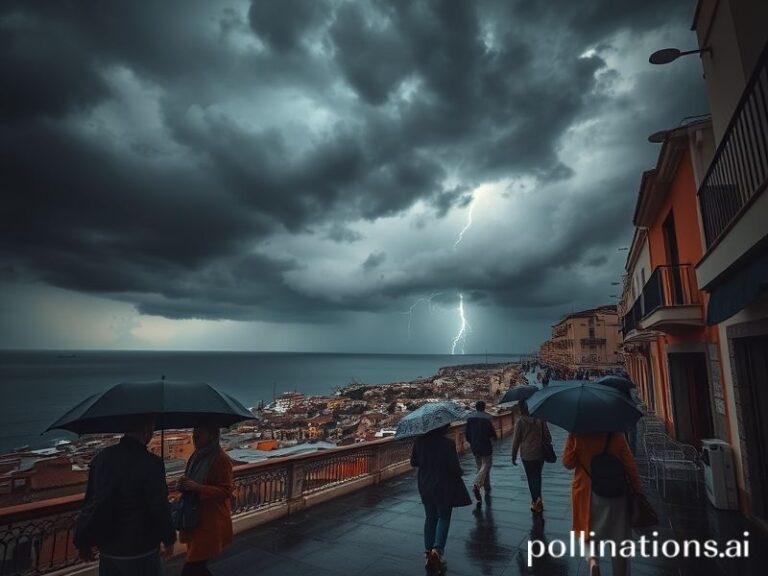elsbeth
Elsbeth, the Legal Tourist: How One Prosecutor Became the World’s Favorite Foreign Correspondent
By the time CBS shipped Elsbeth Tascioni—Chicago’s most flamboyantly unhinged defense lawyer—to New York under the guise of “monitoring police reform,” half the planet had already turned her into a meme. In Lagos, WhatsApp stickers show her tilting her head like a curious meerkat under the caption “Me negotiating with the power company.” In Seoul, she’s the reaction GIF for every time Samsung’s stock does something inexplicable. Somewhere in the Hague, an intern at the International Criminal Court uses a loop of Elsbeth saying “Technically…” to break the tension during genocide depositions.
The joke, of course, is that a woman who once justified vehicular homicide with interpretive dance is now the United Nations’ unofficial poster child for institutional oversight. Streaming numbers confirm the absurdity: within 72 hours of Elsbeth’s premiere, it trended top-five in 37 countries, beating even the perennial Scandinavian noir du jour. The Danish press called it “Nordic crime with ADHD”; Brazilian critics dubbed it “Better Call Rousseff.” Only the French refused to laugh, insisting the show is “a meditation on post-Brechtian alienation,” which is French for “we don’t get the joke but refuse to admit it.”
Why does a campy American spin-off travel so well? Because every nation already employs its own Elsbeth. She is the Tokyo bureaucrat who dismantles keiretsu corruption using nothing but origami and passive aggression. She is the Nairobi auditor who discovers $40 million in ghost tractors while wearing a Hello Kitty hair clip. She is the Berlin tech-ethics commissioner who interrogates Meta with the same wide-eyed curiosity she once reserved for nicotine gum. In other words, she is the revenge fantasy of every citizen who has watched incompetent elites fail upward. Watching Elsbeth outmaneuver a smug NYPD captain is cheaper than therapy and slightly more effective than a coup.
Global institutions have taken notice. INTERPOL is reportedly studying her interrogation technique—equal parts Socratic method and interpretive charades—as a low-cost alternative to waterboarding. The EU’s Directorate-General for Justice has floated “Tascioni Grants” for member states willing to import eccentric legal consultants. Even China’s Ministry of Public Security has begun subtitling episodes for cadre-training seminars, though Beijing’s censors insist on re-dubbing her as “Comrade Ai, the People’s Attorney,” which strips out the queerness, the neurodivergence, and most of the jokes, leaving 42 minutes of state-approved knitwear.
The darker punchline is that Elsbeth’s rise coincides with the slow-motion collapse of global rule of law. While she’s busy trapping corrupt hotel magnates in wordplay, actual kleptocrats are chartering jets from Dubai to Montenegro faster than you can say “mutual legal assistance treaty.” Her victories feel cathartic precisely because they are imaginary; the real world’s bad guys rarely confess just because someone tilts their head at 37 degrees and asks, “But have you considered the possibility you’re lying?” Still, the show’s worldwide popularity suggests a shared craving for accountability that transcends borders, languages, and tax brackets—an international pact of wishful thinking.
Ratings analysts point out that Elsbeth spikes most dramatically in countries experiencing acute political fatigue. Argentina tuned in just after Milei’s chainsaw-waving inauguration; South Africans binged during load-shedding blackouts; Brits streamed it while waiting for the next prime minister to resign. In that sense, the show is less legal procedural than global sedative—an opioid for the politically disillusioned, coated in Emmy bait and Carrie Preston’s rictus grin.
When the inevitable crossover episode drops—Elsbeth versus Ted Lasso in a battle for the soul of institutional reform—diplomats will probably schedule it into peace talks. Until then, the world keeps spinning, corruption keeps metastasizing, and we keep hitting “Next Episode,” hoping that somewhere, somehow, a woman in mismatched prints is asking the right ridiculous question at the worst possible time. It’s not justice, exactly, but in 2024 it’s the closest thing we’ve got to a functioning international court.







